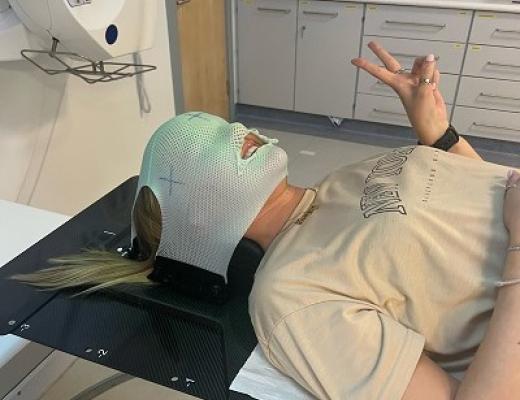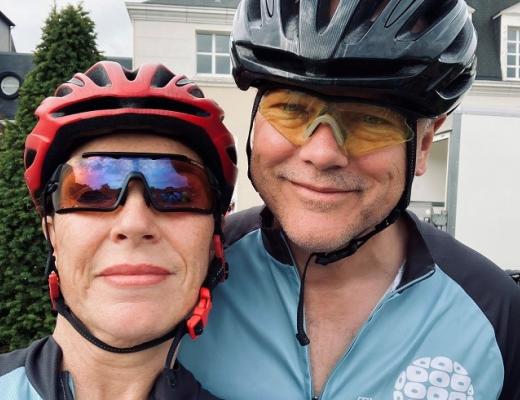Using fitness trackers to improve care for people with blood cancer
We spoke to Tommy Brown, Lead Research Nurse in Haemato-oncology at The Royal Marsden, to find out more about how wearable technology could be used to tailor treatment for myeloma patients.
Digital health innovations are fast becoming an integral part of modern cancer care and Tommy Brown is one of those carrying out research in this exciting new area.
“Over my 10 years in myeloma research, the biggest change I have seen is the improvement in patient outcomes thanks to clinical trials which we have undertaken here at The Royal Marsden” says Tommy. “In the past two decades, survival has improved from around 2–3 years to 8–10 years. It's exciting to see this progress in the treatment for blood cancer."

Myeloma is a type of blood cancer affecting plasma cells which develop in the bone marrow. At present there is no cure for myeloma, but treatment can slow down the development of the disease, help keep symptoms under control and keep myeloma cells at a low level. This is usually done with chemotherapy, but when high doses are used, patients need to undergo a stem cell transplant to replace the stem cells damaged by the treatment.
Through his Charity-funded pre-doctoral research fellowship, Tommy is investigating if wearable technology like fitness trackers can provide insights that will help improve care for people with myeloma.
Using fitness trackers to personalise cancer treatment
“We're running a two-year research project investigating the use of fitness trackers to monitor activity levels in myeloma patients undergoing a stem cell transplant.” says Tommy.

“This involves giving patients wearable devices which monitor patterns of physical activity before, during and after their transplant, with the aim of learning more about the connection between physical activity and treatment outcomes for this group of patients."
"The goal is to see if fitness trackers can help us predict which patients will better tolerate the treatment and to help us make treatments more personalised to their specific situation."
“Physical activity can improve a patient’s physical and psychological ability to undergo cancer treatment, and so we hope trialling this technology will give us valuable insights that will help to improve care for myeloma patients. We can also compare what we find with new and emerging treatments, such as CAR-T therapy, in future clinical trials.”
“We also hope that the data collected by fitness trackers could help consultants when assessing patients in clinic. By having a more accurate picture over a longer period of time of how well patients are doing, this could enable us to tailor our ongoing approach, balancing the need to make a patient’s treatment as effective as possible with a good quality of life.”
Training tomorrow’s research leaders
Pre-Doctoral Research Fellowships like Tommy’s are funded by The Royal Marsden Cancer Charity. The Fellowships are an opportunity for nurses, allied health professionals and pharmacists at The Royal Marsden to carry out their own research, with the aim of improving patient treatment and care.
Thanks to people like you, we can continue to train the next generation of cancer specialists – Find out more about ways to support us today.
Read more stories on our blog.


